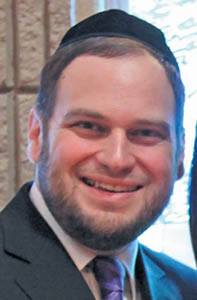
I remember him as the man in the window. My grandfather, z”l, a survivor who lost his first wife and five children in the Holocaust, lived upstairs from us in our Bensonhurst home. He spoke only Yiddish and managed to somehow convey his love and concern for me despite the language barrier. I did manage to pick up Yiddish but my zaidy rarely actually conversed with me. He would sit by the window for a majority of the day and watch what was going on outside. I have some great memories from my childhood. I would stay outside when my friends were home playing on my block all day when not in school. I would play stick ball and football until dusk. We would play wiffle ball between houses and manhunt once it turned dark. There was a certain innocence to those times. I enjoyed playing with my friends who were Italian as I only had one Jewish friend to play with. Yet, I will always remember what I only really understand now. Whenever I looked at my house while outside, I saw my zaidy watching me from the window. It was only when I was older that my mother, a”h, told me that Zaidy was always worried about me and the environment I was in. If I only understood then what I know now.
We are all aware of the wonder that Moshe displayed in front of Pharaoh, namely turning his staff into a snake and then grasping the snake and having it go back to its original form of a staff. Rav Meir Shapiro of Lublin, zt”l, explains that this wonder had a deeper significance. The greatest influence on a person’s life is the environment in which they are living. The most difficult people are influenced positively when living in a positive and caring environment, and the greatest of people can stoop to the lowest of levels when placed in a destructive and careless environment. Moshe was sending a message to Pharaoh through this wonder. Moshe himself had been frustrated with the Jewish people. He saw the greatness within them but at the same time saw how slavery in Egypt had caused them to lose their sense of faith and morality. Moshe presented Pharaoh with a staff that was firm and unbreakable. The staff then turned to a snake, the most cursed of the animal kingdom, which represented trickery and cunning as evidenced in the first parsha of the Torah. Moshe further explained to Pharaoh that when the Jewish people are no longer living in the midst of the Egyptian people who are void of a sense of morality and ethics, they will once again be a firm people of Hashem who rank as examples to the world. Thus, Moshe turned the snake back into a staff, demonstrating the influence of one’s environment. It is so vital for us in our lives to ensure that we raise our children and grandchildren in the right environment. We need to lead by example, making sure that we place ourselves in an appropriate environment befitting who we are as Orthodox Jews.
By Rabbi Eliezer Zwickler
Eliezer Zwickler is rabbi of Congregation AABJD in West Orange, New Jersey. Rabbi Zwickler is also a licensed clinical social worker in private practice. Rabbi Zwickler can be reached at ezwickler@gmail.com.










